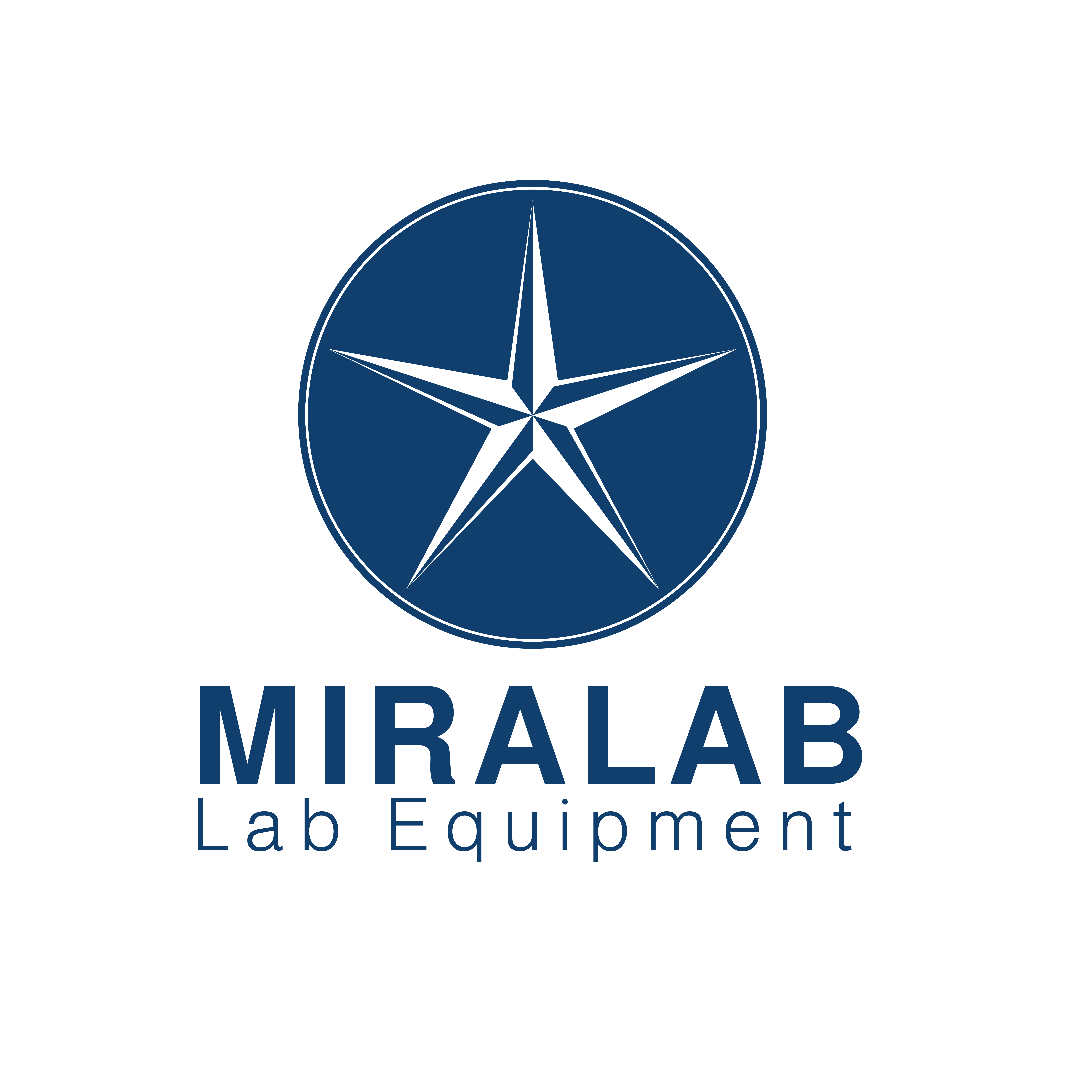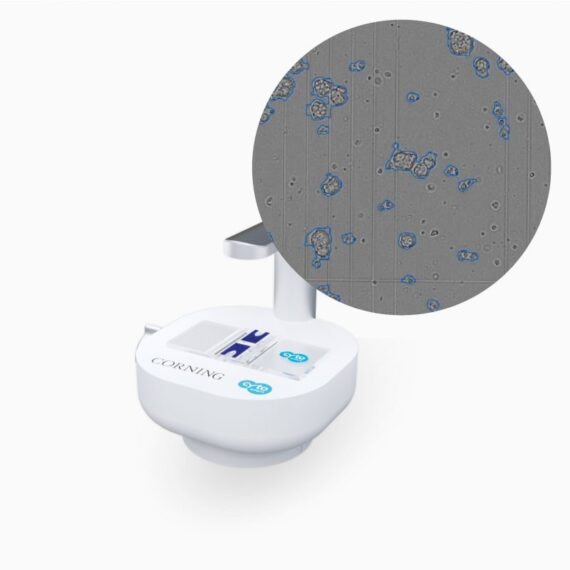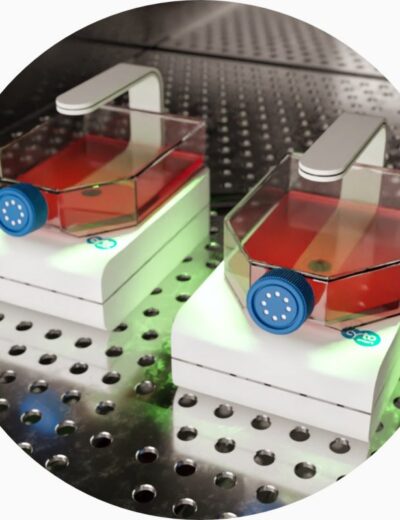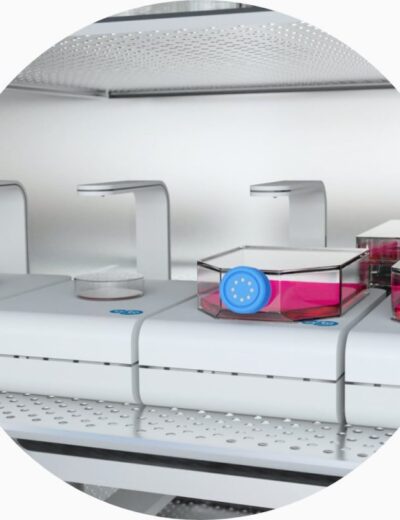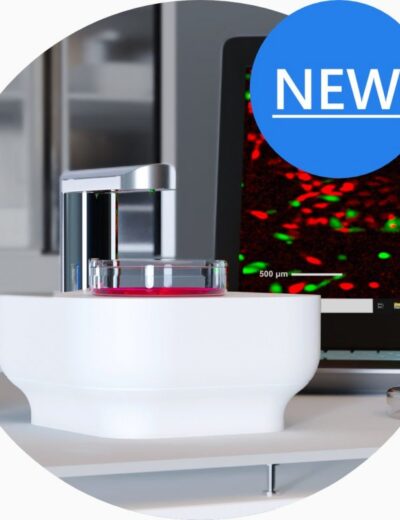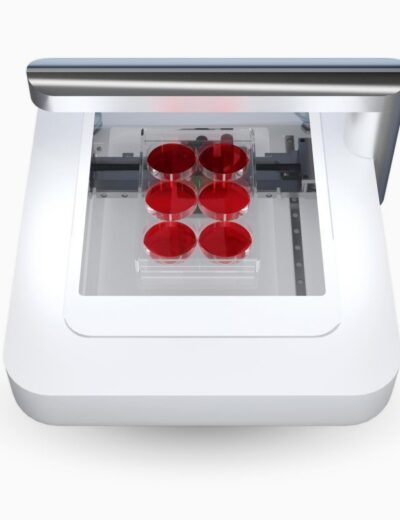Automated Organoid Counter
The Organoid Counting application of the Corning Cell Counter analyses organoids using bright-field image analysis.
Together with Corning®, CytoSMART already introduced an automated cell counter for counting of mammalian cells called the Corning® Cell Counter. A new, powerful and simple software application has been developed that enables organoid counting with the Corning® Cell Counter.
Manually counting organoids is a routine part of laboratory operations, but is time consuming and user dependent. To overcome these issues CytoSMART has introduced an organoid counting application that is:
- Fast & Accurate – thanks to its cloud-based image analysis algorithm
- Low-cost – works with common reusable glass hemocytometer. No consumables required
- Precise – software allows for data gating and image selection for statistical analysis
The Organoid Counting software can analyze a single image in less than three seconds* utilizing the CytoSMART™ Cloud. This cloud computing ability enables the rapid images analysis.
*at a 73 Mbps download and 20 Mbps upload speed
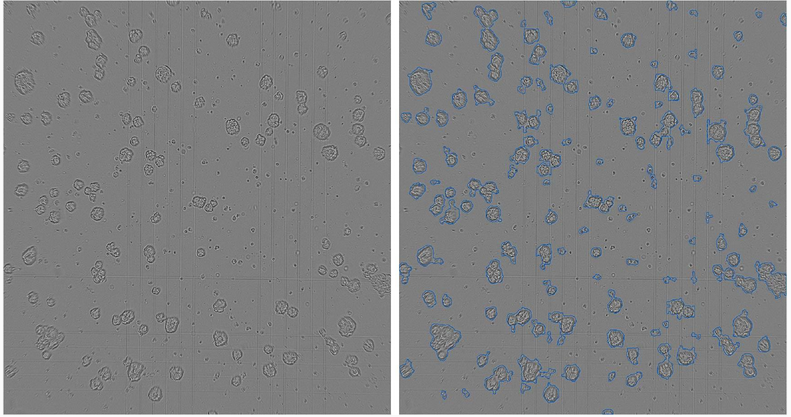
Organoid Counting
Fast and highly accurate
The software contains an image analysis algorithm optimized for organoid detection. This state-of-the-art analysis tool allows for optimal accuracy in data acquisition. Users obtain information on the quantity and size of the organoids in their sample. This data is displayed in separate interfaces that provide a clear overview of the characteristics of the organoid population:
- Single images
- Organoid size distribution
- Average sample concentration
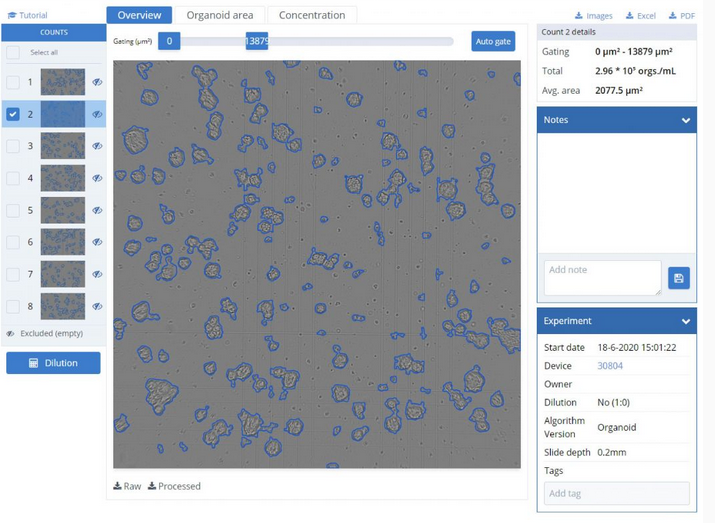
Evaluate organoid homogeneity
Get an overview of the size and number of the organoids in your sample.
Organoid size can be highly variable, therefore it is advisable to take multiple images at various positions within the counting chamber.
To give an example: Suppose a single large organoid covers the Field Of View of a certain area while it is surrounded by smaller organoids. If a single image of that large organoid is used for the concentration estimation, the smaller organoids are neglected and organoid concentration is underestimated. Users can overcome that issue by quickly taking images at various locations in the counting chamber. Using the data obtained from multiple images, the accuracy of the organoid count drastically improves.
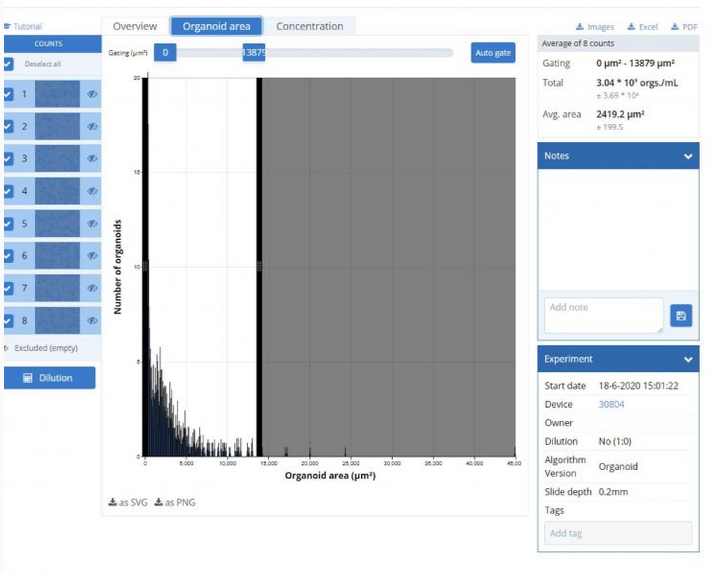
Concentration of organoids in sample
Select multiple images to obtain sample averages
The average organoids concentration is shown in the bar on the far left of the chart. The organoid counts of the selected images are shown separately to assess the homogeneity of the sample data.
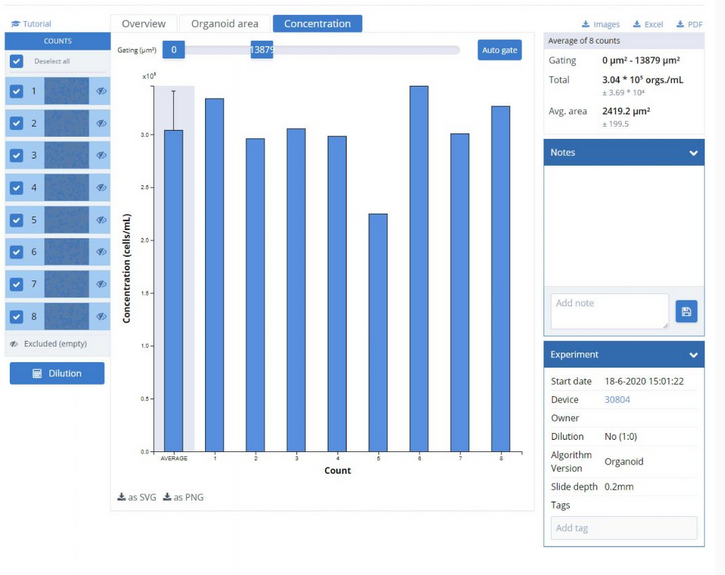
Accessible Data Anywhere, Anytime
The Organoid Counting software instantly generates a report containing organoid number and size. The data is sent to the CytoSMART™ Cloud, which enables you to access the analyzed image data on your smartphone, tablet, or computer. Since all data is saved in the CytoSMART™ Cloud, you can gain insight in the population size and concentration from one experiment to the next.
Technical specifications
| Organoid size range | 10 to 100/200 μm** |
|---|---|
| Measurement time | <3 secs* |
| Compatibility | Reusable and disposable counting chambers with 0.1 or 0.2 mm height |
| Sample volume | 10 μl*** |
| Field of view | 1.5 mm x 1.5 mm |
| Magnification | 100X |
| Image resolution | 1536 x 1536 |
| * Measured using a 73 Mbps download speed and a 20 Mbps upload speed | |
| ** Size limits depend on dimensions of counting chamber, user can set limits in application | |
| *** For Neubauer counting chamber with 0.1 mm height |
